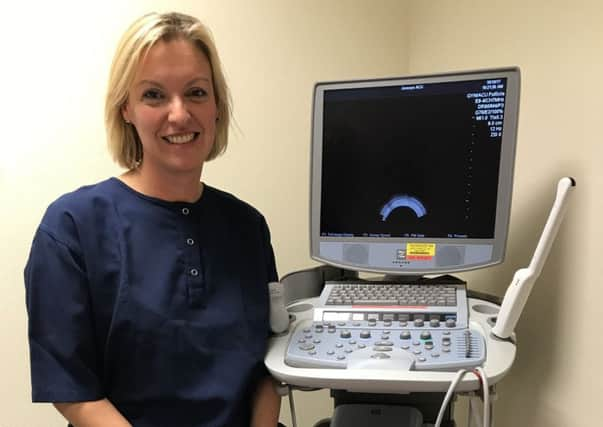Leading embryologist backs call for '˜fairer' IVF funding on NHS


Rachel Cutting MBE, who helped drive a groundbreaking project changing IVF delivery nationwide, says the long term cost of an access lottery will be far greater than equitable provision.
It comes after a special report by The Yorkshire Post looked in depth at the picture across the region, with just two Clinical Commissioning Groups (CCGs) offering the ‘gold standard’ of provision on the NHS.
Advertisement
Hide AdAdvertisement
Hide AdThe mental toll on families who are unable to have children, Ms Cutting warns, alongside the impact on society, is far greater than the funding cost.
“Access should be fair, it should be equitable,” she said. “It’s often called a postcode lottery - it depends on where you live as to whether you meet the criteria for funding.
“But not being able to have children is classified as a medical disease. It’s not a social issue.
“There should be a lot fairer funding on this. It’s a huge cost to the NHS.”
Advertisement
Hide AdAdvertisement
Hide AdMs Cutting, principle embryologist at Jessop Fertility which works with Sheffield Teaching Hospital NHS Foundation Trust, has helped to ensure the births of around 4,000 babies and was awarded an MBE for services to fertility three years ago.
She helped drive a project to reduce multiple birth rates, ensuring greater safety for newborns and their mothers who can be placed at risk with twins or triplets.
There have been huge advances in technology, she says, since the birth of the first ever IVF baby Louise Brown 40 years ago last week, and the success rates are now far higher.
“They say there’s now an IVF baby in every class of school children,” she said. “Whenever I ask, at every school I go to, there is always one that puts their hands up and say ‘me’.
Advertisement
Hide AdAdvertisement
Hide Ad“I don’t think anyone can totally understand the heartbreak of not being able to have a child unless they have been in that situation. It feels like a tremendous failure. We can give that hope, and if it doesn’t work at least we gave them the chance.”
Her comments come after a report from The Yorkshire Post, looking at the experiences of five families across the region, saw charities call for equal access to all, regardless of where they live.
NHS England, stressing that expanding treatment options mean more people than ever are successfully starting a family, said: “In reality the NHS has never been able to offer all of the IVF that people might want. Nonetheless, there were over 20,000 babies born using IVF in the UK in 2016 with the number of cycles funded by the NHs remaining consistent.”
But Ms Cutting, who works closely with families that are affected, says funding for such services should be a “mainstay” of the NHS.
Advertisement
Hide AdAdvertisement
Hide Ad“We don’t just create life, we create families,” she said. “It’s an incredibly emotional journey for patients.
“It can be very draining, and upsetting, but when it works it gives that couple, who wouldn’t otherwise be able to, the chance to conceive.
“We’ve got to keep pushing success rates and emerging technologies forward so we can keep on making the breakthroughs.
“It makes a huge difference. When you see patients come through, there’s hope there but there’s heartbreak. The difference, when they get those positive test results, is huge.”